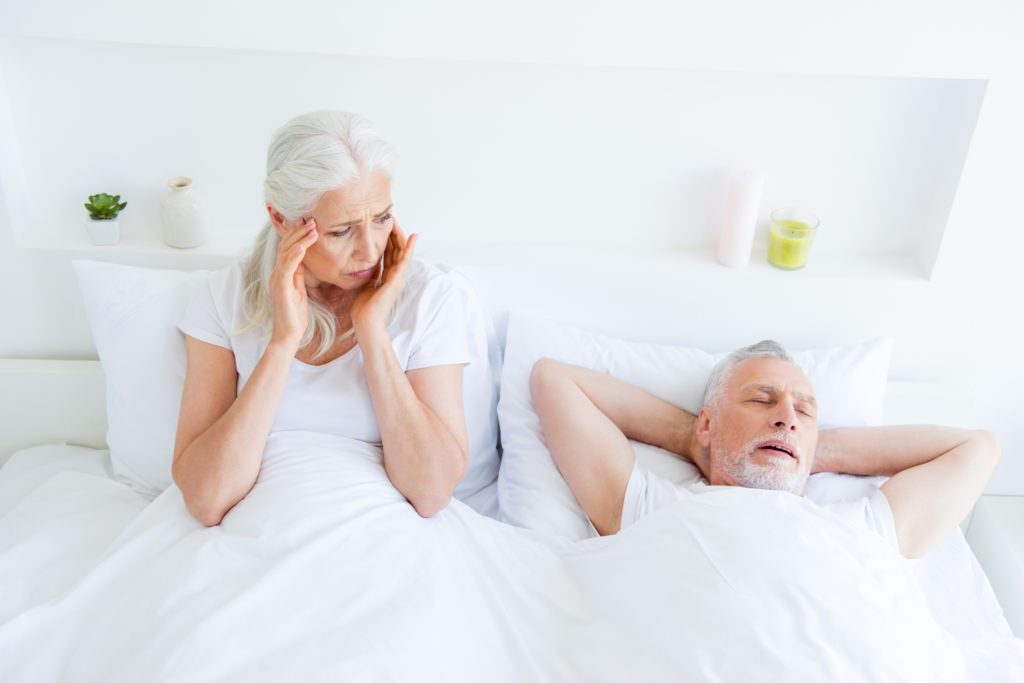Snoring can be a nuisance, especially if you have a partner. Depending on how loud you snore, you could keep them awake all night. Or consequently, move to another room in order to get some sleep. It could even bother you!
Some patients wake themselves up from their slumber because their snoring is so loud. Maybe you have tried varying remedies from nose strips to changing your diet. Sometimes, you need a medical intervention to help. If you snore frequently and nothing seems to help, consider talking to your dentist.

Snoring and Sleep Apnea
If you speak to your dentist about your snoring issues, they may recommend a sleep study. Sleep apnea may cause your snoring. Now, not all snoring is related to sleep apnea. However, it is one of the leading symptoms, especially if you notice waking multiple times a night. A sleep study examines your breathing, heart rate, and body movements to diagnose a sleep disorder. This can help you identify the cause of your snoring issues.
Sleep apnea is a type of sleep disorder that disrupts your breathing while you rest. The most common form of sleep apnea is obstructive sleep apnea (OSA). With OSA, your tongue and other soft tissues block your airway as you sleep. Your body is meant to relax while you sleep. Yet, with OSA, the soft tissues in the throat will relax too much and obstruct your airway. This can affect the oxygen levels in your blood.
Your body will correct for the lack of oxygen, so you may gasp awake. Other symptoms of sleep apnea include daytime sleepiness, lack of focus, irritability, or insomnia. Over time, sleep apnea can have more severe effects on your health. It puts a strain on your heart and your immune system, which can develop into heart problems or metabolic syndrome. Sleep apnea is not a condition that anyone should take lightly.
If you are diagnosed with a mild to moderate case of OSA, your dentist can offer you a solution.
Oral Appliance Therapy
The typical treatment for all forms of sleep apnea is a continuous positive airway pressure machine or CPAP machine. This device supplies a steady stream of oxygen through a mask, keeping your airway open. Fortunately, there are several kinds of CPAP machines and masks, depending on your needs. If you need a CPAP machine, you can talk to your primary care physician. However, your dentist may be able to provide you with another option.
Oral appliance therapy (OAT) helps keep your airway open while you sleep. OAT is similar to a mouthguard in that it is a device you place in your mouth. The looks of OAT may vary from practice to practice, but the concept is still the same.
The device keeps your jaw and tongue in the correct positions to prevent obstructing your airway. In essence, it realigns your mouth and tongue to ensure you can breathe properly. As a result, your dentist will custom-make your OAT device, ensuring a comfortable fit.
